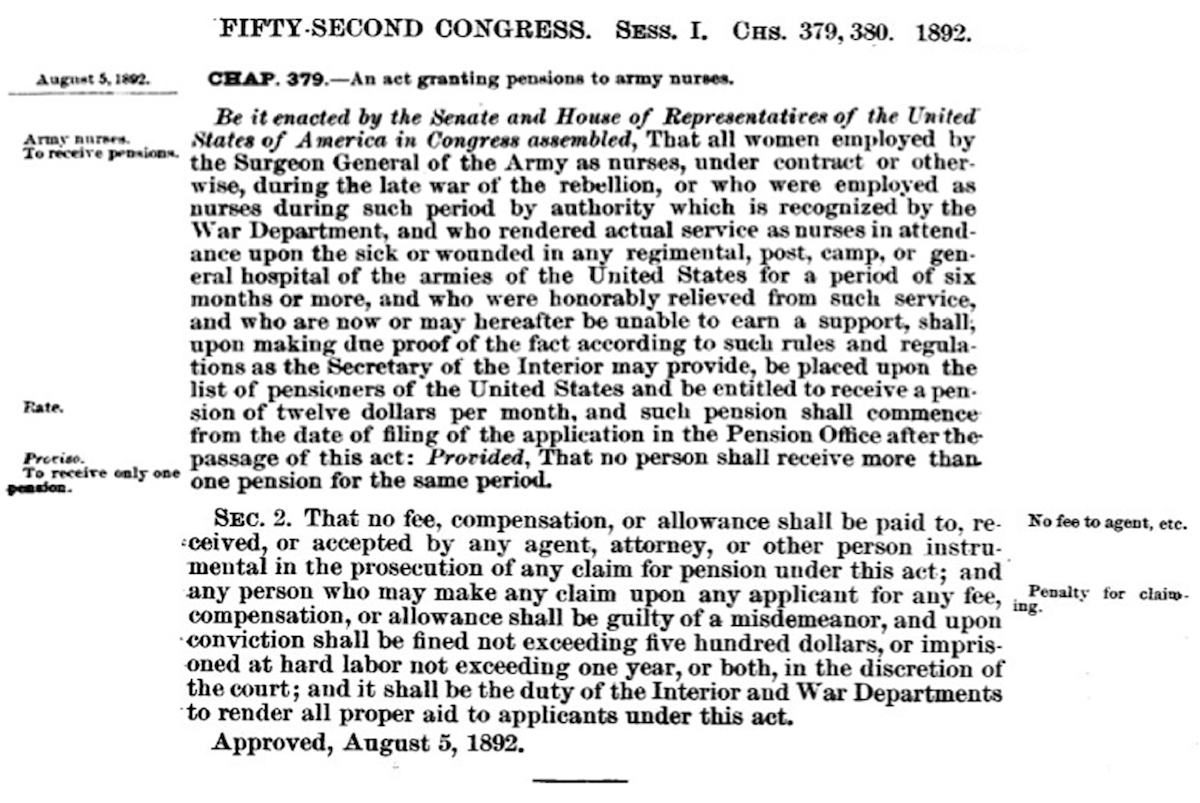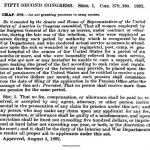
"Army Nurses Act," Congressional Statue, 1892, Library of Congress.
Be it enacted by the Senate and House of Representatives of the United States of America in Congress assembled, That all women employed by the Surgeon General of the Army as nurses, under contract or otherwise, during the late war of the rebellion, or who were employed as nurses during such period by authority which is recognized by the War Department, and who rendered actual service as nurses in attendance upon the sick or wounded in any regimental, post, camp, or general hospital of the armies of the United States for a period of six months or more, and who were honorably relieved from such service, and who are now or may hereafter be unable to earn a support, shall; upon making due proof of the fact according to such rules and regulations as the Secretary of the Interior may provide, be placed upon the list of pensioners of the United States and be entitled to receive a pension of twelve dollars per month, and such pension shall commence from the date of filing of the application in the Pension Office after the passage of this act: Provided, That no person shall receive more than one pension for the same period.
Sec. 2 That no fee, compensation, or allowance shall be paid to, received, or accepted by any agent, attorney, or other person instrumental in the prosecution of any claim for pension under this act; and any person who may make any claim upon any applicant for any fee, compensation, or allowance shall be guilty of a misdemeanor, and upon conviction shall be fined not exceeding five hundred dollars, or imprisoned at hard labor not exceeding one year, or both, in the discretion of the court; and it shall be the duty of the Interior and War Departments to render all proper aid to applicants under this act.
Approved, August 5, 1892
Army Nurses Act (1892)
Despite years of unsuccessful negotiations, the Woman's Relief Corps and the Army Nurses' Association successfully lobbied Congress for pension entitlements for Civil War nurses. Their efforts resulted in the Army Nurses Pension Act, signed into law by President Benjamin Harrison on August 5, 1892. This entitlement represented the first official and sustained recognition of women’s contributions during the war. In fact, Harriet Tubman, a famous abolitionist, served as a nurse during the war and received a federal pension under the Army Nurses Pension Act. Read the Nurses’ Pension Act and examine the qualifications for nurses to receive acknowledgement of their service during the Civil War.
